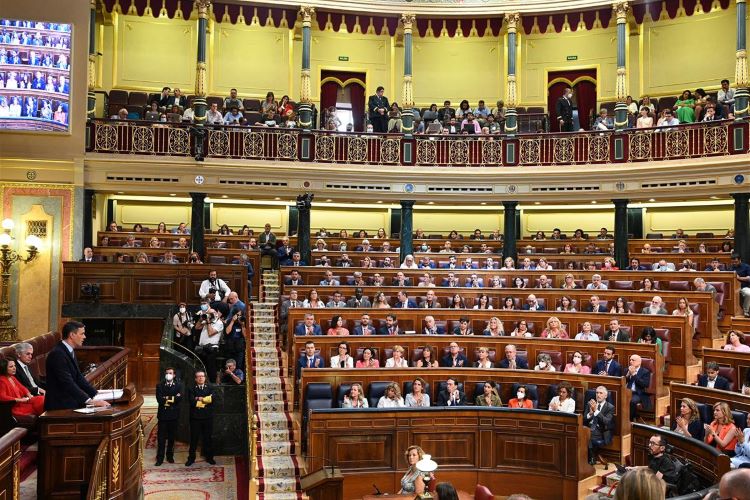The Diplomat
The European Parliament is going to request the appearance of the Minister of Interior, Fernando Grande-Marlaska, to explain the tragedy of the events of June 24 at the Melilla fence, in which at least 23 people died during a massive assault.
According to parliamentary sources informed the Europa Press agency, the Committee on Civil Liberties, Justice and Home Affairs (LIBE) of the European Parliament is not only going to request the minister’s appearance, but is even studying the possibility of sending a mission of MEPs to both sides of the border to analyze the situation on the ground. The timing of this possible mission will still have to be discussed at forthcoming Commission meetings.
The decision to summon the Minister, according to the same sources, was taken yesterday by the coordinators of the Commission during a meeting dedicated precisely to the issue of migration in Europe. The initiative came from the United Left group (GUE), which proposed to the meeting of LIBE coordinators the organization of a debate on the events in Melilla in which Marlaska and some humanitarian organizations, such as the Spanish Commission for Refugee Aid (CEAR) and the Moroccan Association of Human Rights (AMDH) would appear. The proposal was accepted by majority and now it remains to decide the date, which is intended to be “as soon as possible”, depending on the agenda of the minister and the other guests. The Commission will meet again on September 5.
This past Wednesday, the National Council for Human Rights (CNDH), dependent on the Moroccan Government, assured that the violent events registered in Melilla were due to the inaction of the Spanish authorities, who “hesitated” to provide “the necessary assistance and aid” in spite of “the pushing and shoving of migrants in front of the gates, which remained hermetically sealed”, with the “most probable” consequence of “increasing the number of dead and injured”.
The report of this commission – chaired by Amina Bouayach and Mounir Bensala, both appointed by King Mohamed VI – puts the number of dead at 23 and 217 wounded, including 140 policemen and 77 migrants, mostly from Sudan and Chad. All of them had arrived in Morocco via Libya and Algeria.
After learning of the report, the Spanish Ministry of the Interior assured that the Guardia Civil had acted with “criteria of proportionality and full respect for human rights”. For her part, the Government spokesperson, Isabel Rodriguez, responded yesterday to the accusations of the CNDH with the usual argument that Morocco is “a reliable partner” and “a neighboring country with which we must have good relations, not only in the field of migratory flows, but also in the economic field”.






